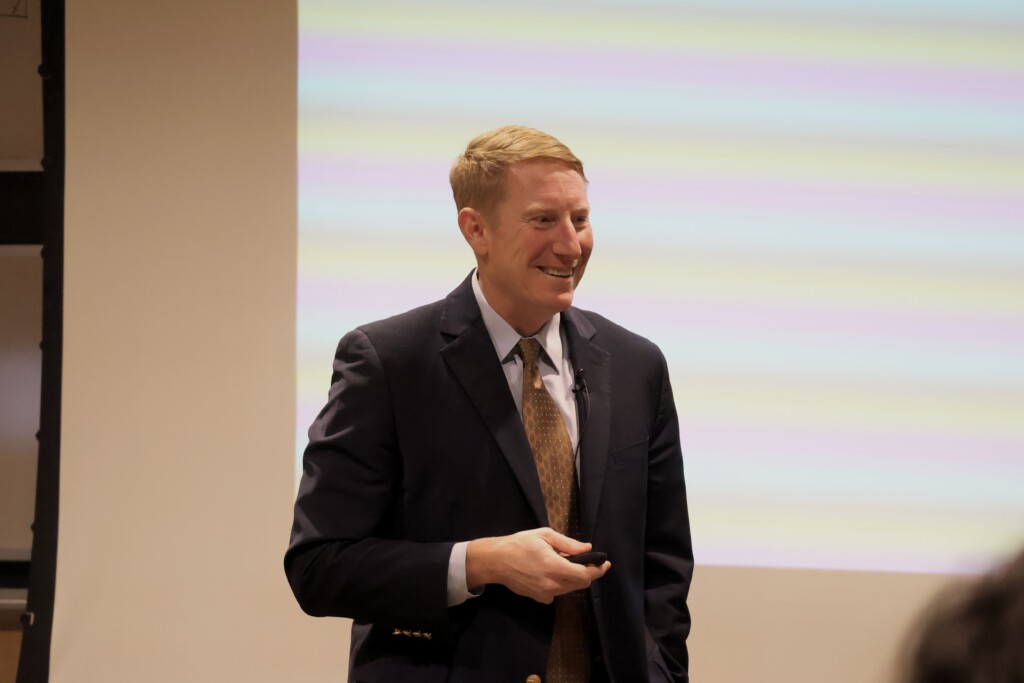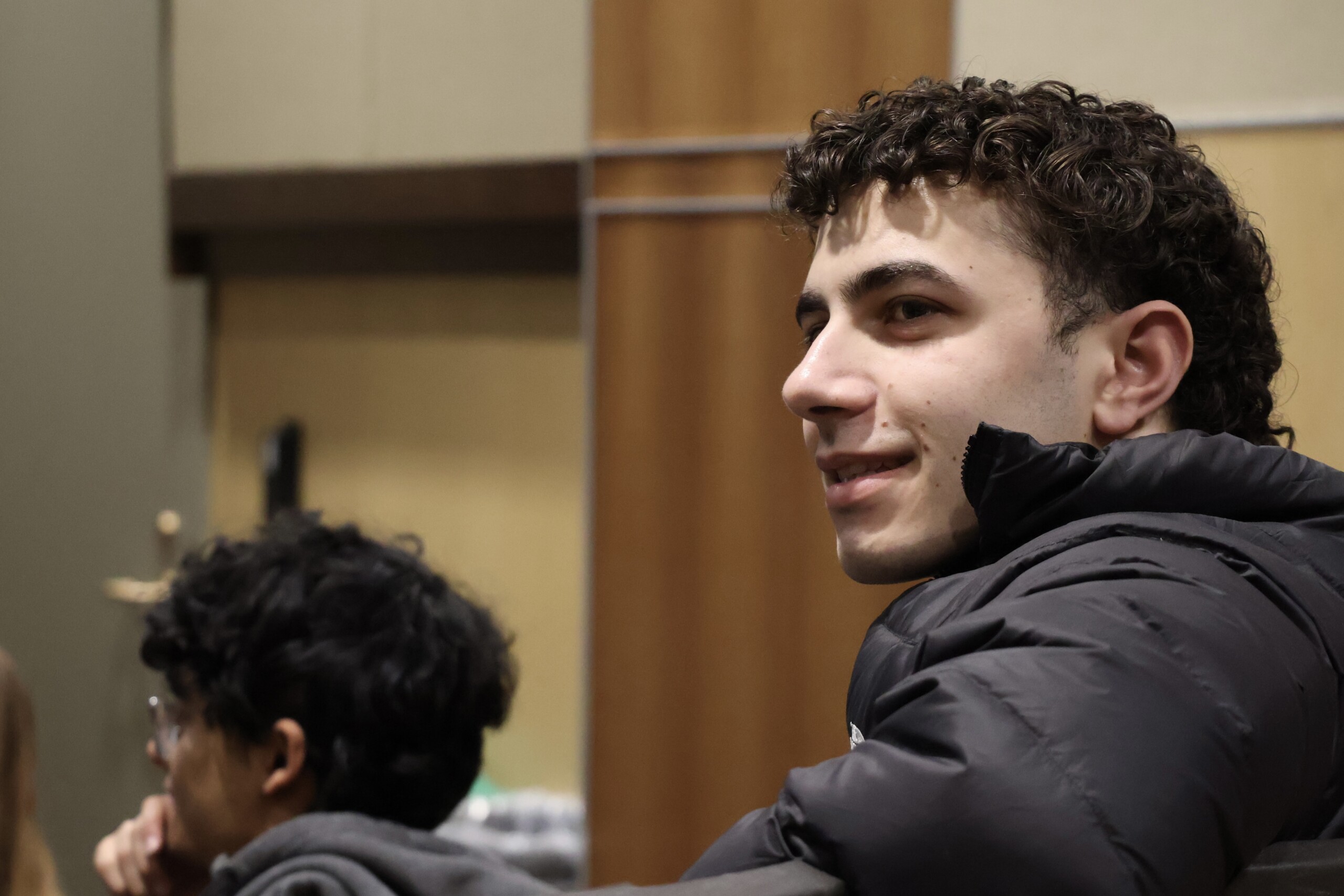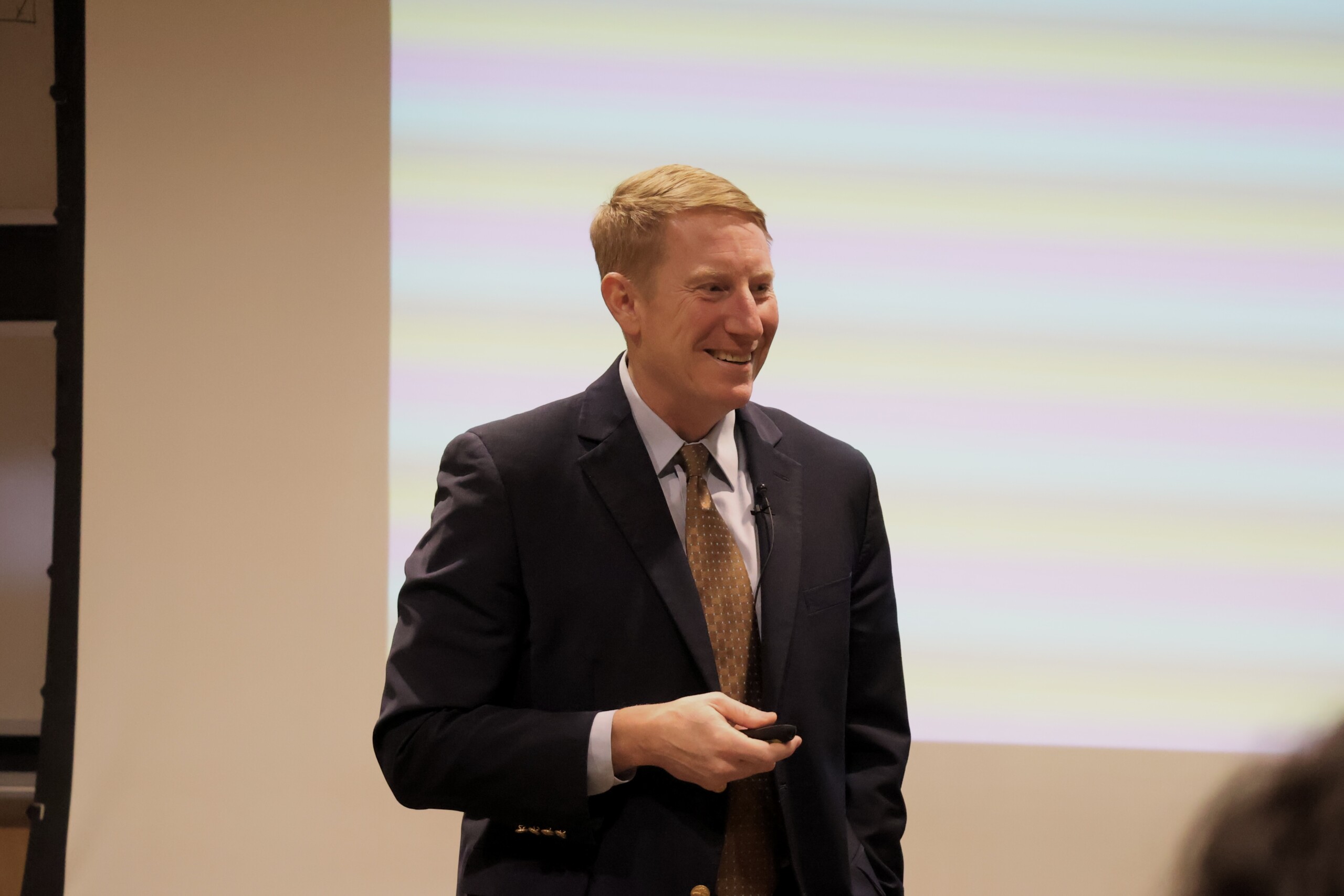Dr. Benjamin Powell, a Texas Tech University professor and author, visited the University Feb. 19 to give a lecture on sweatshops and, in his view, the important role they play in a broader economic landscape.
Powell defined sweatshops as jobs that pay workers low wages — or rather, jobs that are “low-pay by standards that we’re used to hearing” — and that have dangerous working conditions.
Saying that taking away workers’ options leaves workers worse off, Powell argued that people should not support a blanket ban on sweatshops.
“We don’t make their lives better when we get rid of their least bad option,” he said. “We make their lives better when we give them more better options.”
Powell then addressed his critics and explained the nuance of his position. He said his book “Out of Poverty: Sweatshops in the Global Economy” is only a defense of sweatshops in how anti-sweatshop group policies are not the answer. He emphasized that he does not prioritize profits over people.
“Welfare of the workers is the goal,” Powell said. “Me and the anti-sweatshop activists agree on that. Now, we [must] have a means-end discussion about what policies deliver on that better life for people in poorer countries.”
Powell also discussed wage economics, calling on audience members to create a fictional scenario discussing wage economics in sweatshops. He assigned one student to be a sweatshop worker and another to be a factory owner in the same country.
“[The sweatshop worker] can create two dollars of revenue stitching in your back room. He’s currently on a farm earning 50 cents,” he told the student playing the factory owner. “What’s the maximum you’re willing to pay him?”
Powell used this scenario to illustrate the idea that employers have bounds on what they are willing to pay their workers, and that this upper bound (the maximum that an employer would pay an employee while still making a profit) is only as much as the worker’s revenue.
“The lion’s share of this work […] getting people out of real, extreme poverty, is about moving this upper bound,” he said. “About 80% of the variation in wages across countries is explained by productivity differences.”

Powell is an economics professor in Rawls College of Business at Texas Tech University and the executive director of Texas Tech’s Free Market Institute.
Powell also described a survey he conducted of Guatemalan sweatshop workers asking whether they would choose gaining better working conditions (such as more bathroom breaks or having safer working conditions) for lower wages. The workers overwhelmingly chose that they would rather keep their current wages and conditions.
“What’s this tell me?” Powell asked. “You should believe in economics!”
Powell has been researching sweatshops for over two decades, first co-authoring a paper in 2004 with David B. Skarbek, and later publishing a book called “Out of Poverty: Sweatshops in the Global Economy” in 2014.
This January, he published a second edition of his book to examine more recent data.
“Part of the reason for doing a new edition was that people were still asking me to give talks on it,” Powell said in an interview with the CT. “The data was a little bit stale for current college students, so I wanted to update it with more recent examples that correspond with things that have happened in [the students’] lifetimes.”
First year Paxton Kuhn, who attended the event with classmate Nick DiPaulo, heard about the lecture from his microeconomics professor, Michael Rizzo. Kuhn said that before the event, he and DiPaulo theorized about what Professor Powell’s perspective on sweatshops would be.
“We thought about it, kinda intuitively, like, this is why sweatshops have to be a thing,” he said. “[But] he said a lot of stuff that was interesting that we hadn’t thought about.”

Powell spoke to students in Dewey Hall on Wednesday. This follows the release of the second edition of his book on global sweatshop economics in January.
DiPaulo added on, saying that “I think it’s pretty important to understand the economics of certain things before you make your decision. That was the most opening thing for me: make sure you understand the economics of the issues before you.”
UR Economics professor Steven Landsburg, who invited Powell to speak, explained how he thought Powell’s lecture would help guide students to think critically.
“In addition to helping people think about this specific issue of sweatshops,” Landsburg explained, “he’s also helping people develop the skill of thinking more deeply of policy issues in general and thinking about the actual consequences of actions that you take as opposed to what you hope the consequences will be.”
Powell’s lecture is part of a grant-funded series organized by Landsburg. Upcoming talks include Jamie Whyte on whether the president of the United States should prioritize Americans Feb. 27 and College of Charleston professor Peter Calcagno on the aftermath of economic development incentives March 25.



